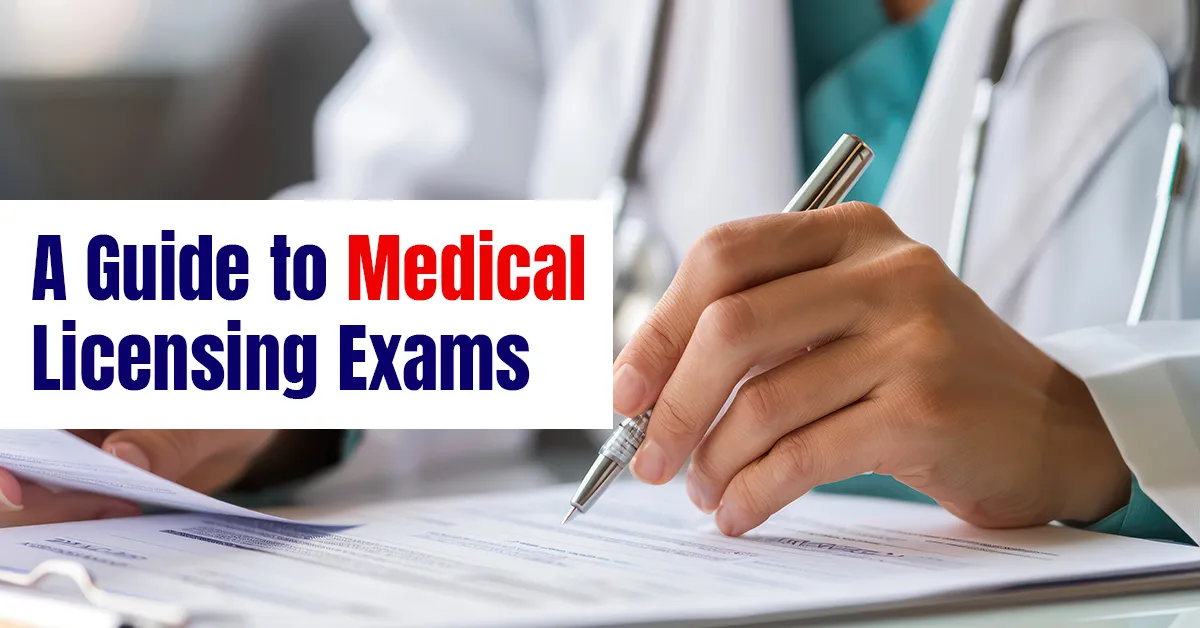
In order to be a doctor, aspiring future doctors have to undergo rigorous training programs, practical training, internships, and much more. In addition, students have to pass medical licensing exams. These exams serve as a standardized measure to ensure that all practicing doctors meet a minimum standard of competence. While the ultimate goal of these exams is consistent worldwide, the structure, content, and process vary significantly from one country to another.
The USMLE, which stands for the United States Medical Licensing Exam, is a crucial series of standardized exams that medical students and graduates need to successfully complete in order to obtain a medical license in the United States. This exam consists of three steps and is an essential process for obtaining medical licensure in the United States.
Step 1: The exam tests basic science knowledge in the subject matter of anatomy, biochemistry, and physiology. It is typically taken after the second year of medical school.
Step 2: Divided into two steps, this exam tests the theoretical knowledge as well as the clinical skills of medical students and their ability to apply this knowledge in a practical setting.
Step 3: Taken during residency, the third step assesses whether the examinee can apply medical knowledge and understanding of biomedical and clinical science essential for the unsupervised practice of medicine.
In the United Kingdom, international medical graduates must pass the Professional and Linguistic Assessments Board (PLAB) tests to practice medicine. The comprehensive examination tests candidates in two scenarios:
PLAB Test 1: This is a written multiple-choice exam that tests basic medical science and clinical knowledge. It is designed to assess the candidate’s knowledge in the medical sciences.
PLAB Test 2: This is an Objective Structured Clinical Examination (OSCE) that assesses clinical and communication skills. It involves 18 scenarios, each lasting eight minutes, which stimulates real-life clinical situations.
Medical students considering practicing medicine in Canada have to qualify MCCQE which is further segregated into two parts:
MCCQE Part I: This exam tests medical knowledge and clinical decision-making abilities. It includes objective-type questions and clinical decision-making cases and is usually taken during or after the final year of medical school.
MCCQE Part II: This is a clinical skills examination that involves examining candidates' medical knowledge and decision-making abilities and is usually taken during or after the final year of medical school.
FMGE, or, Foreign Medical Graduate Examination is the Indian licensing examination conducted by the National Board of Examinations (NBE). This examination is conducted for overseas students who have completed their MBBS degree abroad.
Moreover, India is transitioning to a new licensing system known as the National Exit Test (NExT). the NEXT will serve as a single, standardized exam for medical graduates.
The implementation of NEXT aims to standardize the assessment of medical graduates across India, ensuring a uniform standard of medical education and practice.
To be a licensed medical professional in Australia, aspiring doctors must pass the Australian Medical Council Exam (AMC). In order to appear for this licensing exam, candidates must complete their medical studies from a university recognized by the Australian Medical Council. The AMC exam is an objective-based assessment that analyzes the candidate’s knowledge and understanding of medical concepts.
This licensure exam ensures that medical professionals meet the required standards and are equipped to provide quality healthcare services to the Australian community.
Medical licensing exams are a critical component of the healthcare system, ensuring that physicians possess the necessary knowledge and skills to provide safe and effective care. While the structure and content of these exams vary globally, their purpose remains consistent: to uphold the standards of the medical profession and protect patient safety. As medical education and healthcare continue to evolve, these exams will undoubtedly adapt to meet new challenges and standards, maintaining their vital role in the journey of becoming a licensed physician.